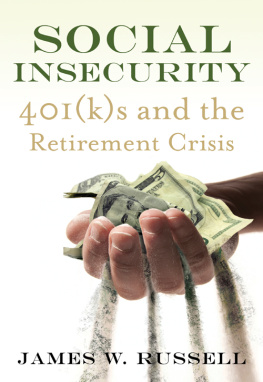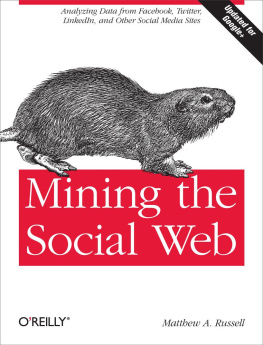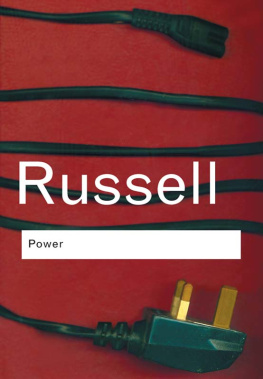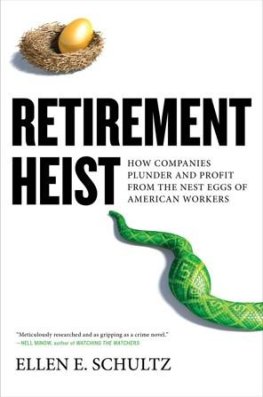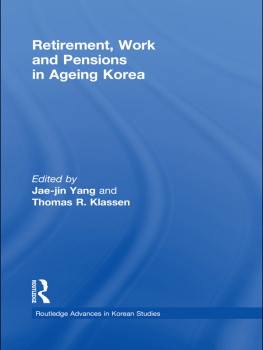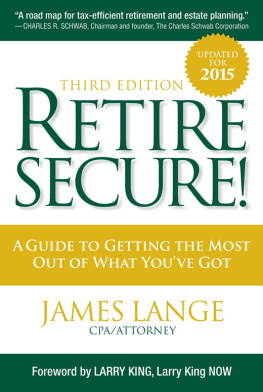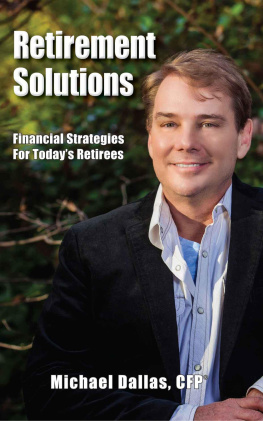
For the activists working for pension rights
and to defend Social Security
Preface
On my sixty-fifth birthday, instead of looking forward to retirement, I found myself addressing an overflow crowd of a hundred forty people at a university. I had, with a number of other people, organized a group called the Connecticut Committee for Equity in Retirement. We were speaking at forums for state employees throughout the state about the crisis in our 401(k)-like retirement plan. The crisis was that there would not be enough money for any of us to retire without taking severe plunges in our standards of living. We knew that because the previous spring our employer, the State of Connecticut, was having severe budgetary problems and had offered an incentive for high-seniority employees at the top of their pay scales (such as me) to retire. The state assumed it could save money if we retired. We would be replaced by new, lower-salary employeesor not replaced at all.
I say that we were in a 401(k)-like plan because technically we were in a 401(a) plan. Both are named after provisions of the Internal Revenue Service code that deal with a common approach to retirement: build up individual stock market investment accounts to finance retirement income. This approach differs radically from that of traditional pensions and Social Security, as we will see. The only difference between a 401(k) plan and the 401(a) we had is that our employer was in the public rather than private sector. There are a number of other 401(k)-like employer-sponsored plans such as 403(b)s and 457s. The 401(k) plans are simply more recognized because more people have them. Individual Retirement Accounts, though not employer sponsored, follow the same approach of attempting to build up income for retirement through stock market investing.
State employees in Connecticut, as well as most other states, are divided between a minority group (mostly working for state colleges and universities) who have the 401(k)-like plans and the majority who still have traditional pensions. The states early retirement plan turned out to be a test between the two different approaches. One could logically assume that if the retirement approaches were equally beneficial, there would be roughly equal proportions of employees from the two different plans who would accept the early retirement offer.
The results, though, were astounding. More than 40 percent of eligible state employees in the traditional pension accepted the offer, versus only 1 percent in the 401(a) plan. Part of the reason, but only a small part, was that more members of the traditional pension plan accepted the early retirement offer because it was very generous to them. It gave them three extra years of credit, which would mean approximately 5 percent to 6 percent more income for the rest of their lives, amounting in some cases to over $100,000. Members of the other plan were offered a payment of only $6,000 to be spread over three yearswhat we bitterly referred to as a tinfoil handshake. By far the largest reason, though, why members of our 401(a) plan did not accept the early retirement offer was because we could not afford to retire based on the inadequate values of our stock market portfolios.
So here I stood in front of a hundred forty faculty members and administrators at the University of Connecticut on my sixty-fifth birthday. According to my retirement plan, sixty-five is the usual retirement age. But I had nowhere near the amount of money that I would need to continue to live in retirement more or less the way I live now. The experts tell us that we should have between 70 percent and 100 percent of our final salaries as income during retirement. By my calculation, I had somewhere around 45 percent to 50 percent by combining my 401(a) plan and Social Security projected incomes.
Some might think that it had been my fault as well as the faults of all the others who came up or would come up short at retirement time. Maybe I didnt save enough money. We are constantly urged to put away more money from our take-home paychecks. I am writing these lines, in fact, during National Save for Retirement Week, an occasion promoted by the financial services industry.
I believe in saving. I have had a savings account ever since I had a paper route in Muskogee, Oklahoma, which was my first real job when I was twelve years old. Immediately, I set up a savings account. I dont think theres ever been a time since then that Ive not held some savings, however small. Even in the worst of times when Ive been unemployed, Ive still managed to keep some savings as a reserve. That just happens to be the way I live my life. In a certain way, this message to save for retirement resonated with me and I did put away money. For a number of years after I paid off my house, I put a sum equivalent to the former mortgage payment into my retirement account. That was in addition to what was normally deducted from my paycheck.
Most people I know did not do this. I am not pointing a finger at them, nor am I trying to win a merit badge for my savings habit. I understand why they did not do this. I did it because I have always tried to live a frugal life and believe in the virtue of saving. Many people think I am a cheapskate as a result. At the same time, I understand that its very difficult for people to save beyond normal savings for retirement, especially if they are still making house mortgage payments. Until the Great Recession in 2008, the price of houses was only going up. People were paying higher and higher percentages of their incomes for their homes.
People with children have considerable additional expenses. When children become college age, college must be paid for. College education has become increasingly expensive. I say that as someone who has made a living from teaching in college. When I began teaching, the cost of public higher education was very affordable, but no longer is. For the 20122013 academic year, average tuition and fees at public four-year colleges and universities were 3.57 times what they were for the 19821983 year.
All this togetherhow much you have to pay for a house, how much you have to pay for college, how much you have to pay for normal living expensesmakes it very difficult to save money for retirement. Despite all those odds, I was able to save some money. So my inability to retire cannot be blamed on the lack of a savings ethic.
Maybe I did not invest wisely. Im not an expert investor, nor do I want to be. I do not wish to spend my days worrying about whether my investments are going up or down. There are other things I want to do with my time. Some people enjoy following the stock market and find that interesting and exciting. They can live their lives that way. Most people, though, are probably more like me and have neither the knowledge nor the interest to become expert investors.
Nevertheless, I did not invest in a totally foolish way. I diversified my investments. As a result, when the stock market crashed in 2008, I lost about 25 percent of what I had accumulated.
Those of us who have 401(k)-type retirement accounts live the myth of Sisyphus: just when we think were really doing well, just when we think that our money is building up at a very nice rate, it falls back down again and we have to begin not exactly over again. But we have to build it up again. You might console yourself by thinking that eventually it will come back. Theres no reason to worry every time the money falls back. Butand this is an important problemrebuilding takes added time that means it will take that much longer to achieve enough money to be able to retire.

